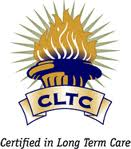Designations
CERTIFIED FINANCIAL PLANNER™ professional (CFP®)
 Today more than ever, CERTIFIED FINANCIAL PLANNER™ professionals are an essential resource. From budgeting, to planning for retir®ement, to saving for education, to managing your taxes and your insurance coverage, “finances” doesn't't mean just one thing for most Americans — and “financial planning” means much more than just investing. Bringing all the pieces of your financial life together is a challenging task.
Today more than ever, CERTIFIED FINANCIAL PLANNER™ professionals are an essential resource. From budgeting, to planning for retir®ement, to saving for education, to managing your taxes and your insurance coverage, “finances” doesn't't mean just one thing for most Americans — and “financial planning” means much more than just investing. Bringing all the pieces of your financial life together is a challenging task.
Although many professionals may call themselves “financial planners,” CFP® professionals have completed extensive training and experience requirements and are held to rigorous ethical standards. They understand all the complexities of the changing financial climate and will make recommendations in your best interest.
Certified Financial Planner Board of Standards Inc. owns the certification marks, CFP® , CERTIFIED FINANCIAL PLANNER™, CFP® (with plaque design and flame design) in the US which it awards to individuals who successfully complete the CFP Board's initial and ongoing certification requirements.
Accredited Investment Fiduciary (AIF®)
 A “fiduciary” is someone who is managing the assets of another person and stands in a special relationship of trust, confidence, and/or legal responsibility. A fiduciary is required by law to always act in the best interests of their client, beneficiary, or retirement plan participant. AIF® Designees have acquired a thorough knowledge of fiduciary responsibility and can be an invaluable resource to investment fiduciaries and individual investors alike. An AIF® designation represents that person's knowledge of a Global Fiduciary Standard of Excellence and their application of the global standard into their own practice.
A “fiduciary” is someone who is managing the assets of another person and stands in a special relationship of trust, confidence, and/or legal responsibility. A fiduciary is required by law to always act in the best interests of their client, beneficiary, or retirement plan participant. AIF® Designees have acquired a thorough knowledge of fiduciary responsibility and can be an invaluable resource to investment fiduciaries and individual investors alike. An AIF® designation represents that person's knowledge of a Global Fiduciary Standard of Excellence and their application of the global standard into their own practice.
Chartered Financial Consultant (ChFC®)
 Your Chartered Financial Consultant® has completed the most extensive educational program required for any financial services credential. Each ChFC® has taken eight or more college-level courses on all aspects of financial planning from The American College, a non- profit educator with the highest level of academic accreditation.
Your Chartered Financial Consultant® has completed the most extensive educational program required for any financial services credential. Each ChFC® has taken eight or more college-level courses on all aspects of financial planning from The American College, a non- profit educator with the highest level of academic accreditation.
The average study time for the program is over 400 hours, and advisors frequently spend years earning this coveted distinction. Each ChFC® must also complete a minimum of 30 hours of continuing education every two years, adhere to strict ethical standards, and must meet extensive experience requirements to ensure that you get the professional financial advice you need.
Behavioral Financial Advisor (BFA™)
A Behavioral Financial Advisor integrates traditional finance practices with psychology and neuroscience to improve emotional competency and decision-making behavior that increases effective usage of the financial plan for you and your clients.
“The CFP gives advisors the knowledge they need to serve their clients and Behavioral Financial Advice, or BFA, gives them the wisdom." - Mike Greene, Board of Directors, Chairman of the CFP Board
Behavioral Finance is the integration of psychology and the physiology of the brain with traditional financial principles. The purpose of Behavioral Finance is to provide a greater understanding of the role that emotions play in the decision-making process, and to provide tools and techniques to help utilize that knowledge to make more rational, values-based decisions.
Certified Retirement Counselor® (CRC®)
The Certified Retirement Counselor® (CRC®) certification is independently accredited, by the National Commission for Certifying Agencies, and was created to advance recognition among retirement planning professionals of the need for a retirement specific certification program that demonstrates a mastery of subject matter, a commitment to the retirement planning profession, and adherence to a code of ethics and continuing education.
The Certified Retirement Counselor® (CRC®) demonstrates a mastery of both retirement accumulation and distribution planning. They adhere to a Code of Ethics and must demonstrate their commitment to the retirement planning profession. The curriculum a CRC must pass has been developed by professionals and is continually kept up-to-date and relevant.
Certified in Long-Term Care (CLTC®)
 The "Certified in Long-Term Care" (CLTC®) designation was created in 1999. It focuses on the discipline of extended care planning. It provides professionals the critical tools necessary to discuss the subject of longevity and its consequences on their client's family and finances. Students learn how to mitigate these consequences by developing a plan to protect their clients and their families.
The "Certified in Long-Term Care" (CLTC®) designation was created in 1999. It focuses on the discipline of extended care planning. It provides professionals the critical tools necessary to discuss the subject of longevity and its consequences on their client's family and finances. Students learn how to mitigate these consequences by developing a plan to protect their clients and their families.